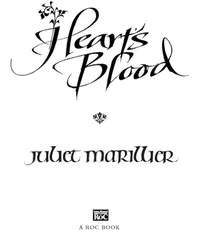Cybele's Secret - Juliet Marillier - Cybele's Secret
Здесь есть возможность читать онлайн «Cybele's Secret - Juliet Marillier - Cybele's Secret» весь текст электронной книги совершенно бесплатно (целиком полную версию без сокращений). В некоторых случаях можно слушать аудио, скачать через торрент в формате fb2 и присутствует краткое содержание. Жанр: Старинная литература, на русском языке. Описание произведения, (предисловие) а так же отзывы посетителей доступны на портале библиотеки ЛибКат.
- Название:Juliet Marillier - Cybele's Secret
- Автор:
- Жанр:
- Год:неизвестен
- ISBN:нет данных
- Рейтинг книги:5 / 5. Голосов: 1
-
Избранное:Добавить в избранное
- Отзывы:
-
Ваша оценка:
- 100
- 1
- 2
- 3
- 4
- 5
Juliet Marillier - Cybele's Secret: краткое содержание, описание и аннотация
Предлагаем к чтению аннотацию, описание, краткое содержание или предисловие (зависит от того, что написал сам автор книги «Juliet Marillier - Cybele's Secret»). Если вы не нашли необходимую информацию о книге — напишите в комментариях, мы постараемся отыскать её.
Juliet Marillier - Cybele's Secret — читать онлайн бесплатно полную книгу (весь текст) целиком
Ниже представлен текст книги, разбитый по страницам. Система сохранения места последней прочитанной страницы, позволяет с удобством читать онлайн бесплатно книгу «Juliet Marillier - Cybele's Secret», без необходимости каждый раз заново искать на чём Вы остановились. Поставьте закладку, и сможете в любой момент перейти на страницу, на которой закончили чтение.
Интервал:
Закладка:
The çarşi was a warren of narrow alleys roofed with a series of domes supported by pillars. Here and there, openings in this roof admitted thin shafts of daylight.
“It’s so dark,” I muttered as we headed into a tiny street crowded with people. “Why aren’t there more lamps?”
“Fire,” said Father. “This place is full of hides and fabrics and papers. A single careless moment could send the whole mahalle up like a torch.”
The streets were lined with small shops, each with its owner seated on a bench outside. There was a street for kerchiefs and embroidered goods, Father explained, and one for coppersmiths, and another for leatherworkers, and so on. I wondered where the booksellers were, the ones Duarte had mentioned. The place seemed to go on forever. I could smell spices and roasting lamb and freshly ground coffee. Now that I was out of the caïque, I was keen to start shopping.
“If we can find a street of fabric sellers,” I said, “I’ll make my purchases straightaway. And, if you don’t mind, Father, I want to do the bargaining by myself.”
“Would I interfere?” Father was smiling. “Just make sure you stay in sight. The place is a maze, and it’s easy to lose one another in this gloom. Stoyan, will you go to the paper merchant’s establishment for me? He should have my order already bundled up; the price has been agreed in advance. By the time you come back to us, my daughter may have brought her business to a conclusion.”
For a little while, we could see Stoyan’s dark head as he moved away through the crowd; then he was gone.
We worked our way down the cloth merchants’ street. Father stood quietly observing the passing crowd, leaving me to exercise my halting Turkish. I was determined not to ask him for help. I drank a lot of tea and made a lot of polite inquiries as to the health of the merchants’ families. Those steps were necessary before the vendors would allow me to inspect their wares: rolls of linen and wool, lengths of fine gauze, muslin for turbans. There was delicate tissue for veils and thick felt for winter cloaks and caps.
At the third shop, I saw some linen I liked, but the price was exorbitant and I could not seem to bargain it down. The man waved his hands, speaking too quickly for me to follow.
“Red linen—too expensive,” I told him, hoping my Turkish was not as bad as his lack of understanding seemed to indicate. “I go elsewhere. Good day to you.”
We moved on. As each merchant in turn inflated his prices to ridiculous heights and refused to bargain the way he would with a male customer, it became plain to me that none of them considered me a serious purchaser. I suspected their best wares were not even being brought to the front of the shop. Father was busy talking to people in the street; everyone seemed to know him. I could hardly blame him for not helping me when I had insisted on doing this on my own.
I became more and more frustrated. I found myself wishing Stoyan would come back so I could ask him to stand beside me and look threatening. I was determined not to leave empty-handed; that was to admit defeat.
I was in a little shop with a narrow doorway to a shadowy inner room. I could see rolls of silk in there: a lovely plum red and a very good mossy green. To judge the quality, I’d need to run the cloth through my fingers and inspect the weave in adequate light.
“Those silks—bring here,” I said, pointing. “If you please.”
Farther down the street, Father had halted to greet two merchants whose style of dress suggested they were Neapolitan. Their wives were with them, in modest gowns and veils.
The vendor was saying I would not be interested in those silks. He waved his hands, telling me he would send his boy to fetch others from storage.
“No! No send boy.” I adopted a more forceful approach, frowning and gesturing. “Those silks. Bring here, I look!”
The vendor shuffled his feet and mumbled at me, not meeting my eye. I was about to say something exceedingly impolite when a familiar voice spoke from behind me in Greek.
“May I assist?”
I turned. A tall, dashing figure stood there, clad in Turkish style in a red dolman and a wide sashlike belt over loose white shirt and trousers. A pair of dark eyes regarded me quizzically down an aristocratic, high-bridged nose. He was still wearing my scarf.
“You are too polite,” said Duarte. “You must stamp your foot, shriek with fury, and threaten to put him out of business.”
“I’m a grown woman, not a spoiled child,” I retorted, my annoyance fueled by frustration. “I do not require your assistance.”
The pirate grinned. His aquiline features took on a conspiratorial look. “We are friends, are we not, Mistress Paula? And I owe you a favor.” His fingers went up to touch the scarf. “Let me help, please.”
Without waiting for a reply, he addressed himself to the cloth vendor in fluent Turkish. I did not catch all of it, but he seemed to be saying that I was the daughter of an unbelievably powerful man and a personal friend of Duarte himself and that I needed to see everything in the shop right now or a terrible, unspecified pestilence would descend on the vendor and all his family. Then, less dramatically, that the trader could count himself fortunate that I had not yet spread word throughout the çarşi that he had insulted a lady.
The effect was stunning. The merchant produced a padded stool and invited me to sit. The tea glasses came out. I explained in Greek what I wanted to see, and, with a ferocious smile, Duarte relayed my wishes to the shopkeeper. The cloth was produced. I inspected it and assessed its quality. I mentioned shoes. The vendor said his boy would show us the best place to purchase fine-quality leather slippers. I spoke of braid and trimmings. The vendor told us how to find his cousin’s establishment in the street of kerchief sellers. One mention of his own name would assure us of attentive service, he added, glancing at Duarte nervously.
I haggled over the price of the silks. By now, we had acquired an audience: my father, the Neapolitan merchants and their wives, and a gaggle of small boys. My Turkish was quite sufficient for this part, but Duarte kept interjecting, threatening the hapless trader with several alarming fates should he take it into his head to cheat me. I ended up with lengths of both the plum and the green at a price I knew to be very fair for middle-grade silk. All the same, I felt dissatisfied. I had so wanted to do this on my own.
We moved on to the shoe seller and then to the kerchief street, where I made additional purchases. Our entourage went with us. Father was watching Duarte closely but did not intervene. He was always alert to anything that might give him a trading advantage. I could see he had made a decision to be unobtrusive and keep his ears open, since I seemed to be coping. The others watched with undisguised interest. I did not like the idea that my visit to the markets would hereafter furnish an amusing tale to be told in the hamam or amongst gatherings of Neapolitan traders. However, the opportunity was too good to let pass.
I purchased a pair of soft leather slippers in dark red, with a flower pattern tooled around the upper edge, and a length of elaborate braid that would look well with the moss-colored silk. I acquired plain, light veils in several shades and a quantity of fine muslin for smallclothes.
Duarte remained close by, putting in a word whenever he seemed to think it necessary. I was torn between irritation and curiosity. There was no need at all for him to do this. It went far beyond compensation for a cheap scarf, even if it had been my favorite.
As the vendor handed me the muslin wrapped up in protective cloth, Stoyan came into view with a package under his arm. The crowd parted as he strode toward us.
Читать дальшеИнтервал:
Закладка:
Похожие книги на «Juliet Marillier - Cybele's Secret»
Представляем Вашему вниманию похожие книги на «Juliet Marillier - Cybele's Secret» списком для выбора. Мы отобрали схожую по названию и смыслу литературу в надежде предоставить читателям больше вариантов отыскать новые, интересные, ещё непрочитанные произведения.
Обсуждение, отзывы о книге «Juliet Marillier - Cybele's Secret» и просто собственные мнения читателей. Оставьте ваши комментарии, напишите, что Вы думаете о произведении, его смысле или главных героях. Укажите что конкретно понравилось, а что нет, и почему Вы так считаете.











